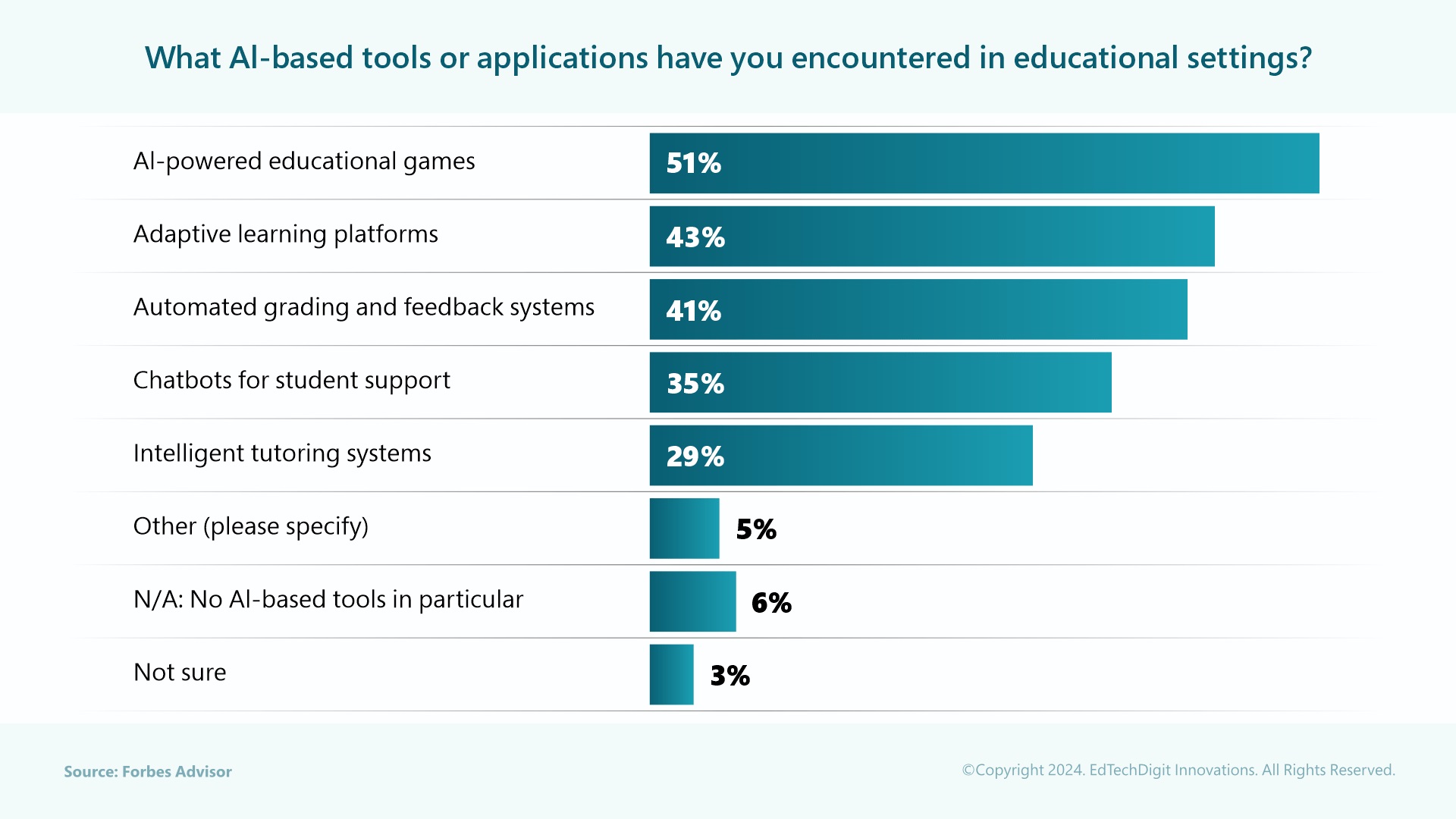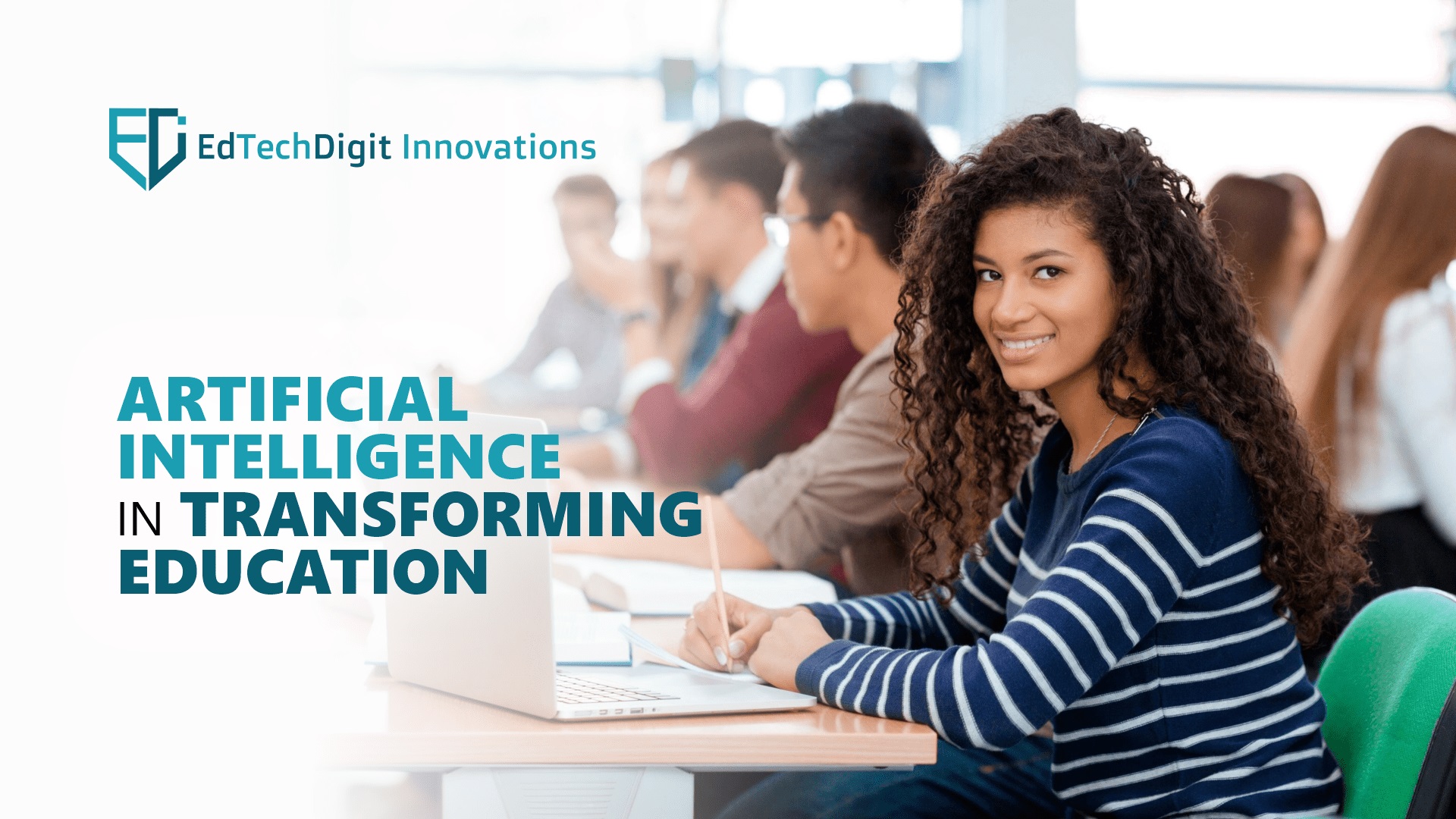Artificial intelligence has been existing for a long time without being noticed. Since its inception, it has had a deep impact across all sectors including healthcare, finance, retail, etc. The impact of artificial intelligence in the education sector is also significant.
We have been using AI in some form or other in every aspect of our lives. AI is everywhere, whether you are using Siri or Alexa, or getting your preferred shows and favorite products recommended based on your preference. However, the launch of ChatGPT a couple of years ago has brought more limelight to this incredible AI technology.
Here let us explore how AI is transforming the education sector and understand teachers’ opinions on AI in education.
Brief overview of AI
Before we proceed to the main topic of discussion, let us briefly understand what artificial intelligence is and what AI in education means.
Artificial intelligence to put it simply, refers to the technology that enables machines and computer systems to perform tasks that require similar human cognition abilities. AI-powered machines and systems can make decisions, understand human languages, and solve problems on their own.
By integrating AI in the classroom, institutes are enjoying several benefits and transforming the teaching and learning experience. According to Vision Research Reports, the AI in Education market is expected to reach $11.53 billion by 2027, growing at a CAGR of 36.03%.
Currently, there are several advanced AI tools available making it easier to understand complex concepts and help retain them longer. AI has made learning more fun and engaging.
How is AI Used in Education?
There are several ways in which educational institutes can use AI to enhance the teaching and learning experience as well as improve their administrative process. Here are some ways AI is used in education:
- Educational Games
Learning while playing has the biggest impact on retaining the concepts learned. AI-powered educational games can be used for more targeted learning and improve the learning experience of students.
- Adaptive Learning
AI is great for the development of adaptive learning platforms that can personalize a user’s learning activities and content. For example, these platforms can adjust the difficulty level as per the user. As students learn easier concepts, they will be provided with more advanced concepts.
Moreover, these platforms also offer continuous assessment and immediate feedback. From rule-based systems to advanced machine learning algorithms, AI systems can use the latest technologies to make them more interactive and efficient.
- Automated Grading
Using AI in classroom assessment technologies, institutes can provide automated grading systems to students. Moreover, AI can be used to streamline planning and administrative processes. Thus, they can free up educator’s time to focus on their core tasks.
- Virtual Assistants
AI is used to develop and deploy efficient virtual assistants and chatbots that can respond to student queries, help them find their desired course, assist with the enrollment and registration process, and more.
Apart from this, Chatbots powered by Generative AI can help solve assignments, assist in research, and brainstorm ideas for their projects. The possibilities are infinite.
- Advanced Tutoring Systems
Dedicated educational tools specialized in specific subjects like math or language, can help provide one-on-one tutoring and mentorship similar to human tutors. Duolingo app and Khanmigo are examples of such advanced simulated tutoring systems.
What Do Educators Think of AI in the Classroom?
Forbes conducted a survey with over 500 educators of varied experience levels to understand the impact of AI in classroom education and found very interesting results. Here’s what educators think of using AI in education.
- More than half of respondents believe AI has a positive impact on education.
- More than 60% of educators admitted to using AI in the classroom. They use advanced AI tools, especially young teachers familiar with using technology, and educators under 26 using it the most.
- The graph below shows how AI is used in education the most.

Ethical Concerns Surrounding AI In Education
AI in education raises ethical concerns, primarily related to academic integrity and equitable access. AI tools like ChatGPT can be misused for cheating and impact the effective learning process. Additionally, overreliance on AI might reduce human interaction, which is very important for the overall development of students.
Data privacy and algorithmic bias are other major concerns, as AI systems may exaggerate existing inequalities. Therefore, it becomes highly important to ensure responsible AI integration in education which requires addressing these issues and developing guidelines to promote ethical use and for maximum benefits.
Conclusion
Artificial intelligence is a revolutionary technology and with the advancement in technology, the use of AI in education is increasing rapidly. Now, there are advanced AI tools like AR, VR, and integrated AI learning platforms that have completely transformed the overall teaching and learning experience. Now more and more educators are willing to integrate AI in the classroom for more effective teaching. However, institutes must consider a few ethical considerations and some challenges related to the successful implementation of AI to reap the maximum benefit of AI in the education sector. As we enter the future, we will see more revolutionary technologies and a greater impact.

